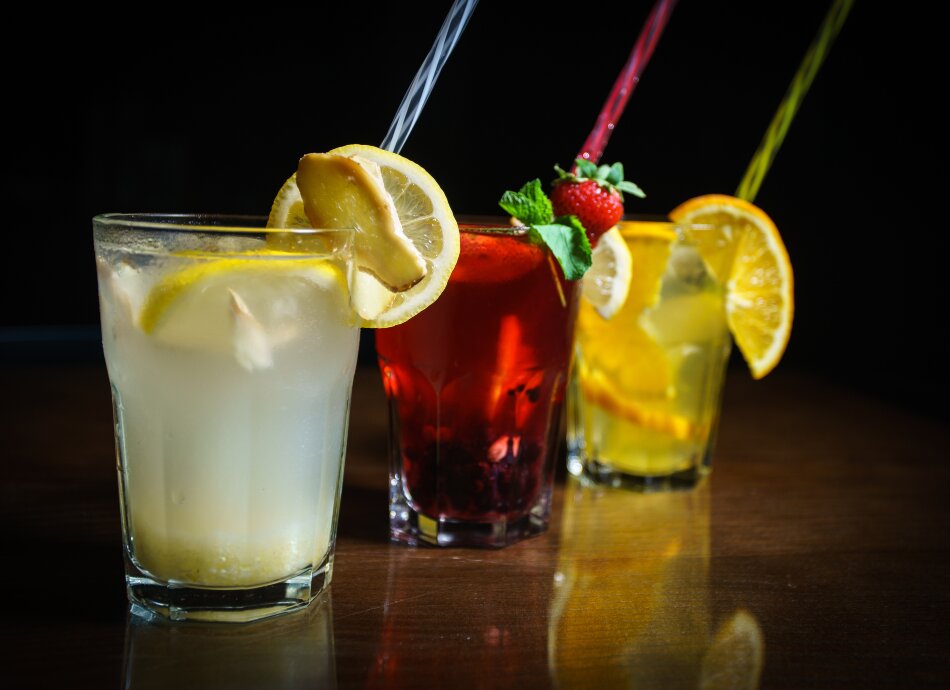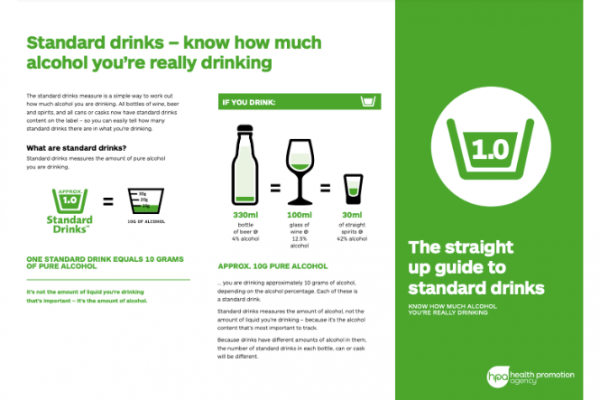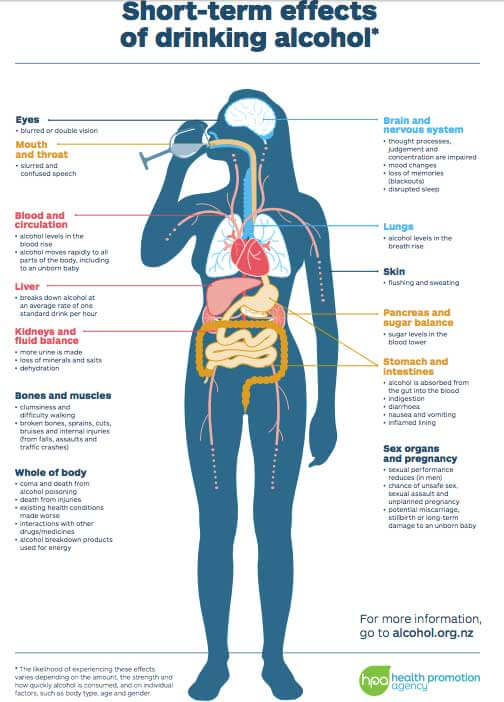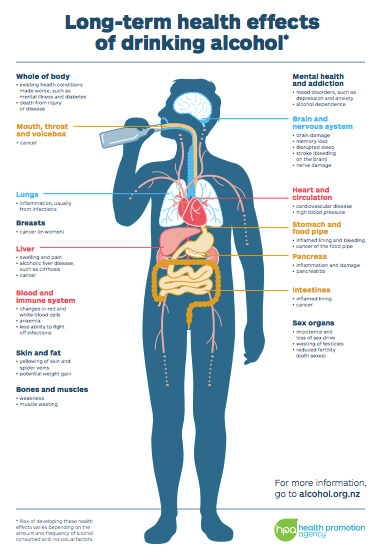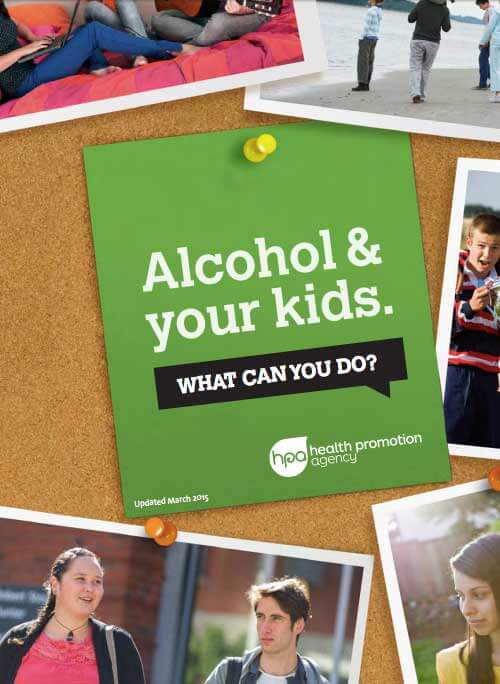Low-risk drinking advice for adults
Low risk is not no risk. Even when drinking within low-risk limits, a range of factors can affect your level of risk, including the rate of drinking, your body type or genetic makeup, your gender, existing health problems and whether you are young or an older person.
The following advice from the Health Promotion Agency (HPA) is to help decrease your risk of alcohol-related accidents, injuries, diseases and death.
It is important to recognise that alcohol is a carcinogen (a substance that can cause cancer), so even if you are drinking following the low risk drinking advice, there is no safe level of consumption.
Reduce your long-term health risks by drinking no more than:
- 2 standard drinks a day for women and no more than 10 standard drinks a week
- 3 standard drinks a day for men and no more than 15 standard drinks a week.
Have at least 2 alcohol-free days every week.
Reduce your risk of injury on a single occasion of drinking by drinking no more than:
- 4 standard drinks for women on any single occasion
- 5 standard drinks for men on any single occasion.
A useful way to remember the number of standard drinks to lower your risk of alcohol-related harm is this chart from the Health Promotion Agency:
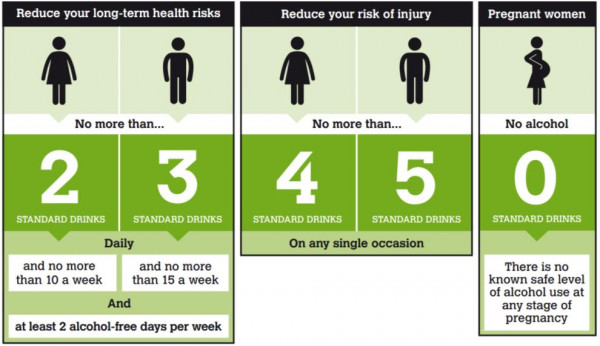
Image credit: alcohol.org.nz
The above advice is based on ‘standard drinks’. A standard drink contains 10g of pure alcohol. A common serve or pour of an alcoholic beverage is often more than 1 standard drink.
If you choose to drink alcohol, there are things you can do to help you stay within low-risk levels. These include to:
- know what a standard drink is
- keep track of how much you drink – daily and weekly
- set limits for yourself and stick to them
- start with non-alcoholic drinks and alternate with alcoholic drinks
- drink slowly
- try drinks with a lower alcohol content
- eat before or while you are drinking
- never drink and drive
- be a responsible host, eg, provide alcohol-free drinks and food and make sure everyone has a safe way to get home
- talk to your kids about alcohol
- limit your drinking to recommended safe levels
- have at least 2 alcohol-free days each week
- seek help if you feel your drinking is becoming a problem.


